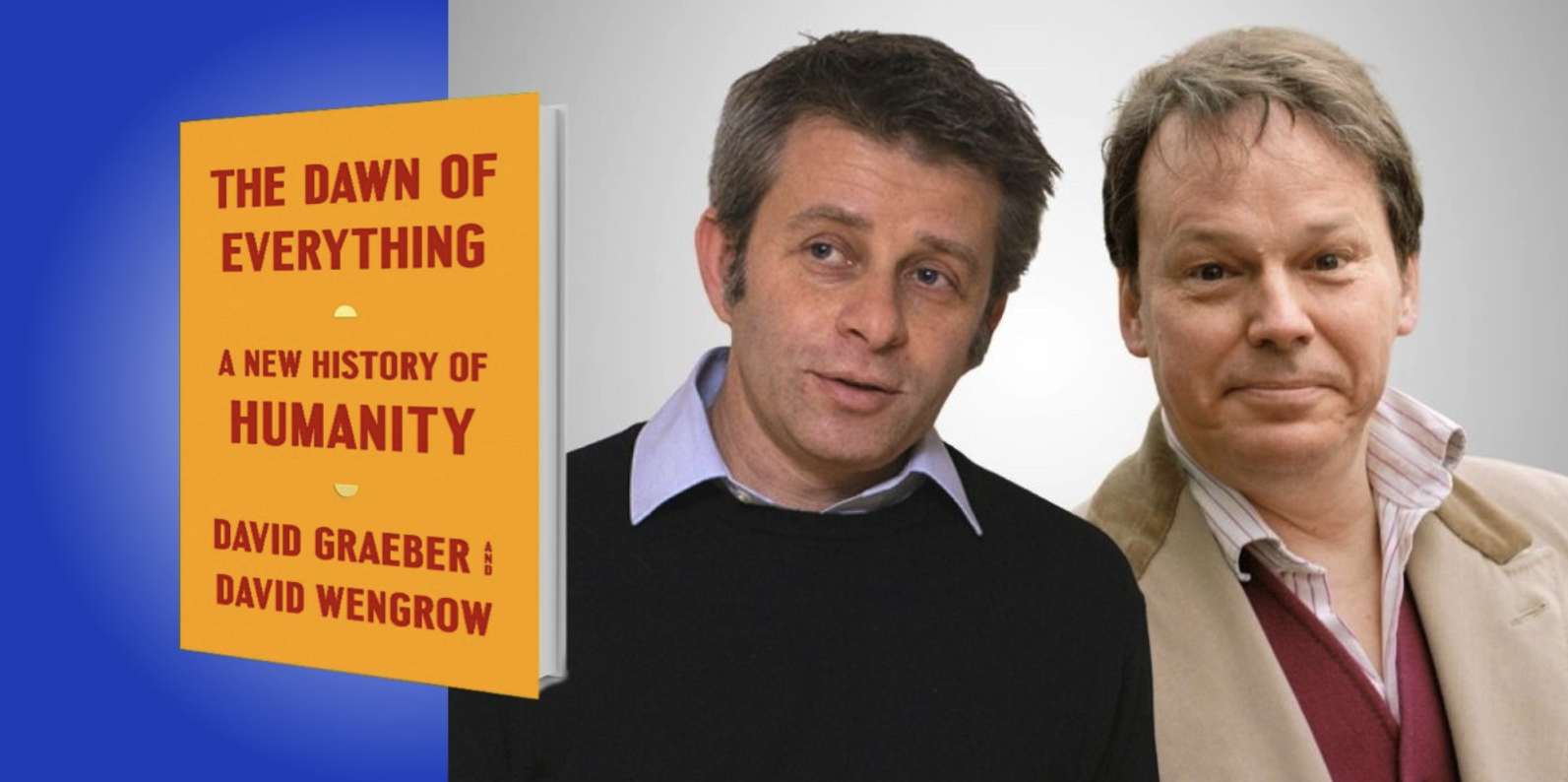The past isn’t what it used to be: “The Dawn of Everything”

If you’re at all interested in the evolution of human civilization, Graeber and Wengrow’s book is a thought-provoking read.
Based on recent archeological evidence, the two authors set out to question – often to the point of debunking – many of our preconceptions about the past.
They start with the controversial – but well argued – suggestion that the Age of Enlightenment and the idea of human rights (as in freedom, equality and brotherhood) were not caused by an autonomous European development of ideas. Rather, it was inspired by European explorers and scholars meeting and exchanging ideas with native Americans!
Among other myths of human history challenged by the book, I found the following to be the most interesting:
Hunter-gatherers do not necessarily live in primitive nomadic bands. There is now evidence of impressive ancient structures and cities built by peoples living a hunter-gatherer lifestyle.
No agricultural revolution actually constituted a point of no return. Ancient peoples seem to have occasionally dabbled in what Graeber and Wengrow terms “play-farming” – sometimes abandoning altogether, often combining it with hunting and gathering, perhaps switching between the two in a seasonal cycle.
People living in large communities did not automatically organise themselves in hierarchical structures. Many ancient megacities appear to have perfectly egalitarian, others were ruled by various forms of hierarchy. But population size does not seem to have been the determining factor.
Graeber and Wengrow devotes much time in the book to exploring various forms of rule and organization. And all evidence implies that our ancestors have been quite willing to experiment with different social structures. Some even changed systems with the season (being hierarchical in the hunting season and agrarian and egalitarian the rest of the year).
In fact, one of the questions the book ponders is: Why did we get stuck? That is – why are we no longer prepared to reorganize our societies when needed? (A question that doesn’t yet seem to have a convincing answer)
I only have one major issue with this otherwise excellently thought-provoking book: Graeber and Wengrow spend a surprising amount of time criticizing their colleagues in the academic establishment – to the point of second-guessing the motives of writers they disagree with. This might be an interesting subject for a different book – but feels strangely jarring in this one.
Please note: This review is based on Audible’s audio book version, solidly read by Mark Williams
Leave a Reply